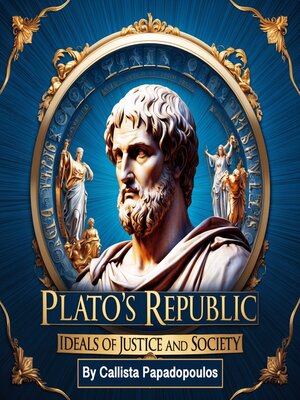
Sign up to save your library
With an OverDrive account, you can save your favorite libraries for at-a-glance information about availability. Find out more about OverDrive accounts.
Find this title in Libby, the library reading app by OverDrive.



Search for a digital library with this title
Title found at these libraries:
| Library Name | Distance |
|---|---|
| Loading... |
This audiobook is narrated by a digital voice.
The Republic stands as perhaps the most influential work of political philosophy ever written, establishing fundamental questions about justice, governance, and human nature that continue to shape political thought more than two millennia after its composition. Written by Plato around 380 BCE during a period of political turmoil in Athens, this masterwork emerged from the intellectual ferment that followed the city's defeat in the Peloponnesian War and the traumatic experience of witnessing his teacher Socrates condemned to death by democratic processes that Plato believed had fundamentally failed in their pursuit of truth and justice.
The dramatic setting of the Republic in the Piraeus, Athens' bustling port district, provides symbolic significance that extends far beyond mere narrative convenience, as this cosmopolitan location represents the intersection of diverse cultures, competing values, and conflicting claims about the proper organization of human society. The conversation takes place in the home of Cephalus, a wealthy foreign resident whose prosperity depends on Athens' commercial success, creating a context that highlights the relationship between economic activity, political power, and moral responsibility that will become central themes throughout the dialogue.
The participants in the discussion represent different generations and philosophical perspectives that were competing for influence in fourth-century Athens, creating dramatic tension while enabling Plato to explore various approaches to understanding justice and political organization. Cephalus embodies traditional piety and conventional morality, his son Polemarchus represents the influence of poetic and cultural tradition, while Thrasymachus advocates the sophisticated cynicism that characterized much sophistic thinking about power and governance during this period of political uncertainty.







